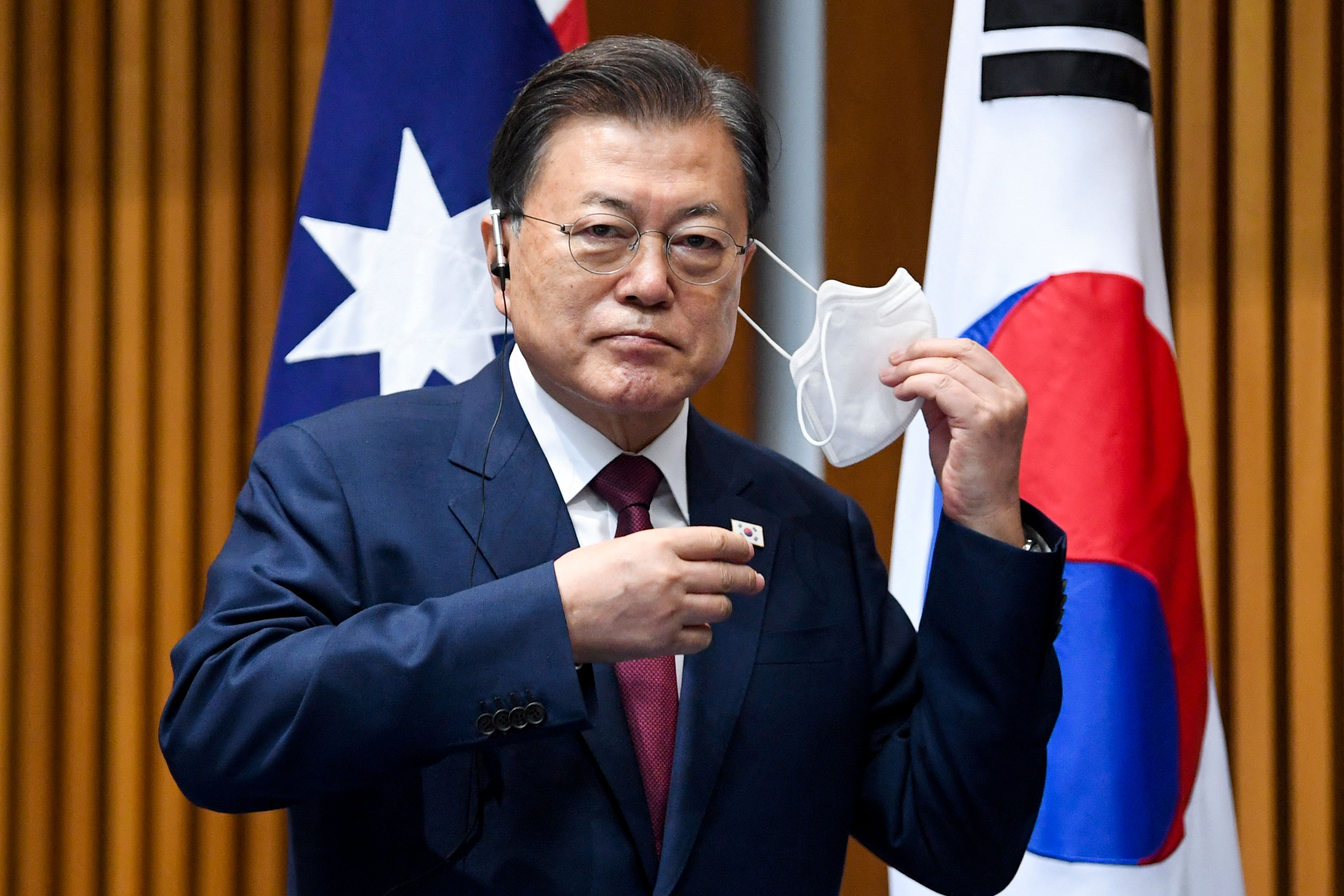North Korea, China, and U.S. have agreed 'in principle' to end Korean War, South Korean president says


A free daily email with the biggest news stories of the day – and the best features from TheWeek.com
You are now subscribed
Your newsletter sign-up was successful
North and South Korea, the U.S., and China have agreed "in principle" to formally end the Korean War, which effectively concluded with an armistice in 1953, but "we are not able to sit down for a discussion or negotiation on the declarations" due to North Korea's demands, South Korean President Moon Jae-in said Monday during a visit to Australia. "We hope that talks will be initiated."
Pyongyang wants the U.S. to drop what it calls America's "hostile policy" toward it, Moon confirmed. North Korea has traditionally meant that to mean the presence of U.S. forces in South Korea, joint U.S.-South Korean training exercises, and U.S. sanctions on North Korea aimed at quashing its nuclear weapons buildup. The U.S. State Department told Axios that U.S. officials are "prepared to meet without preconditions," and "we hope" Pyongyang "will respond positively to our outreach.
"The end-of-war declaration itself is not an ultimate goal," Moon said, describing it instead as an essential step toward denuclearization and peace on the Korean Peninsula.
The Week
Escape your echo chamber. Get the facts behind the news, plus analysis from multiple perspectives.

Sign up for The Week's Free Newsletters
From our morning news briefing to a weekly Good News Newsletter, get the best of The Week delivered directly to your inbox.
From our morning news briefing to a weekly Good News Newsletter, get the best of The Week delivered directly to your inbox.
Moon "leaves office in March after five years of heartfelt pleas to bring permanent peace to the Korean Peninsula," writes BBC Seoul correspondent Laura Bicker. "And yet North Korea remains more cut off than ever." Formally ending the war is Moon's "last hope," she adds, but neither the U.S. nor North Korea seem as enthusiastic or optimistic about the idea as he is. "There's a bigger problem for President Moon," Bicker notes. "South Korea did not sign the armistice. This end-of-war agreement is not his gift to give to the history books. He can keep trying to bring all parties to the table, but getting them all to agree to the details would be the diplomatic equivalent of climbing Everest."
A free daily email with the biggest news stories of the day – and the best features from TheWeek.com
Peter has worked as a news and culture writer and editor at The Week since the site's launch in 2008. He covers politics, world affairs, religion and cultural currents. His journalism career began as a copy editor at a financial newswire and has included editorial positions at The New York Times Magazine, Facts on File, and Oregon State University.
-
 What to know before filing your own taxes for the first time
What to know before filing your own taxes for the first timethe explainer Tackle this financial milestone with confidence
-
 The biggest box office flops of the 21st century
The biggest box office flops of the 21st centuryin depth Unnecessary remakes and turgid, expensive CGI-fests highlight this list of these most notorious box-office losers
-
 What are the best investments for beginners?
What are the best investments for beginners?The Explainer Stocks and ETFs and bonds, oh my
-
 Judge blocks Hegseth from punishing Kelly over video
Judge blocks Hegseth from punishing Kelly over videoSpeed Read Defense Secretary Pete Hegseth pushed for the senator to be demoted over a video in which he reminds military officials they should refuse illegal orders
-
 Trump’s EPA kills legal basis for federal climate policy
Trump’s EPA kills legal basis for federal climate policySpeed Read The government’s authority to regulate several planet-warming pollutants has been repealed
-
 House votes to end Trump’s Canada tariffs
House votes to end Trump’s Canada tariffsSpeed Read Six Republicans joined with Democrats to repeal the president’s tariffs
-
 Bondi, Democrats clash over Epstein in hearing
Bondi, Democrats clash over Epstein in hearingSpeed Read Attorney General Pam Bondi ignored survivors of convicted sex offender Jeffrey Epstein and demanded that Democrats apologize to Trump
-
 El Paso airspace closure tied to FAA-Pentagon standoff
El Paso airspace closure tied to FAA-Pentagon standoffSpeed Read The closure in the Texas border city stemmed from disagreements between the Federal Aviation Administration and Pentagon officials over drone-related tests
-
 Judge blocks Trump suit for Michigan voter rolls
Judge blocks Trump suit for Michigan voter rollsSpeed Read A Trump-appointed federal judge rejected the administration’s demand for voters’ personal data
-
 US to send 200 troops to Nigeria to train army
US to send 200 troops to Nigeria to train armySpeed Read Trump has accused the West African government of failing to protect Christians from terrorist attacks
-
 Grand jury rejects charging 6 Democrats for ‘orders’ video
Grand jury rejects charging 6 Democrats for ‘orders’ videoSpeed Read The jury refused to indict Democratic lawmakers for a video in which they urged military members to resist illegal orders
